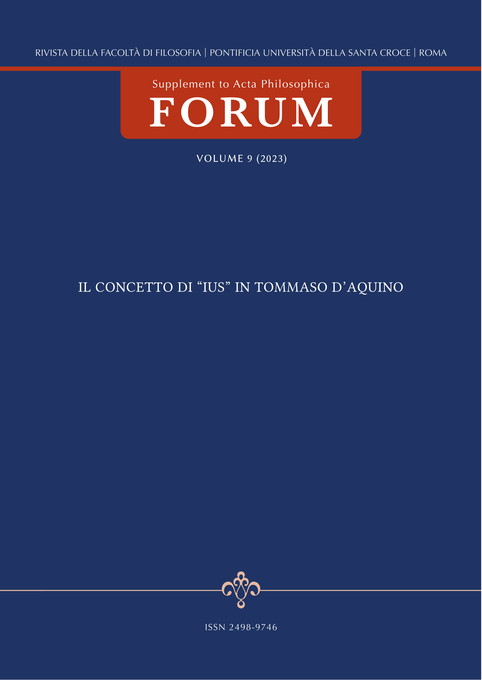The Definition of Law: Dante Alighieri Critic of Thomas Aquinas?
DOI:
https://doi.org/10.17421/2498-9746-09-06Keywords:
Justice, Law, Ipsa res iusta, Proportion, Common GoodAbstract
The essay departs from Dante's critique of the classical definition of law and justice, which Alighieri stigmatises as nomine tantum, questioning whether this affects the thought of St Thomas. The emphasis Dante places on the proportio as the nucleus of law and the connection of law with the bonum commune, find broad agreement in Thomas' interpretation of the definition of justice and his conception of law as ipsa res iusta. The thought of the two supreme authors, however, includes significant differences, both in Dante's adoption of the term proportio and Thomas's adoption of aequalitas to render the core of iustum, and in the way of focusing on the nexus between this and the bonum commune, thereby helping to read more comprehensively the link between law, the political community and the auctoritas in charge of it.



